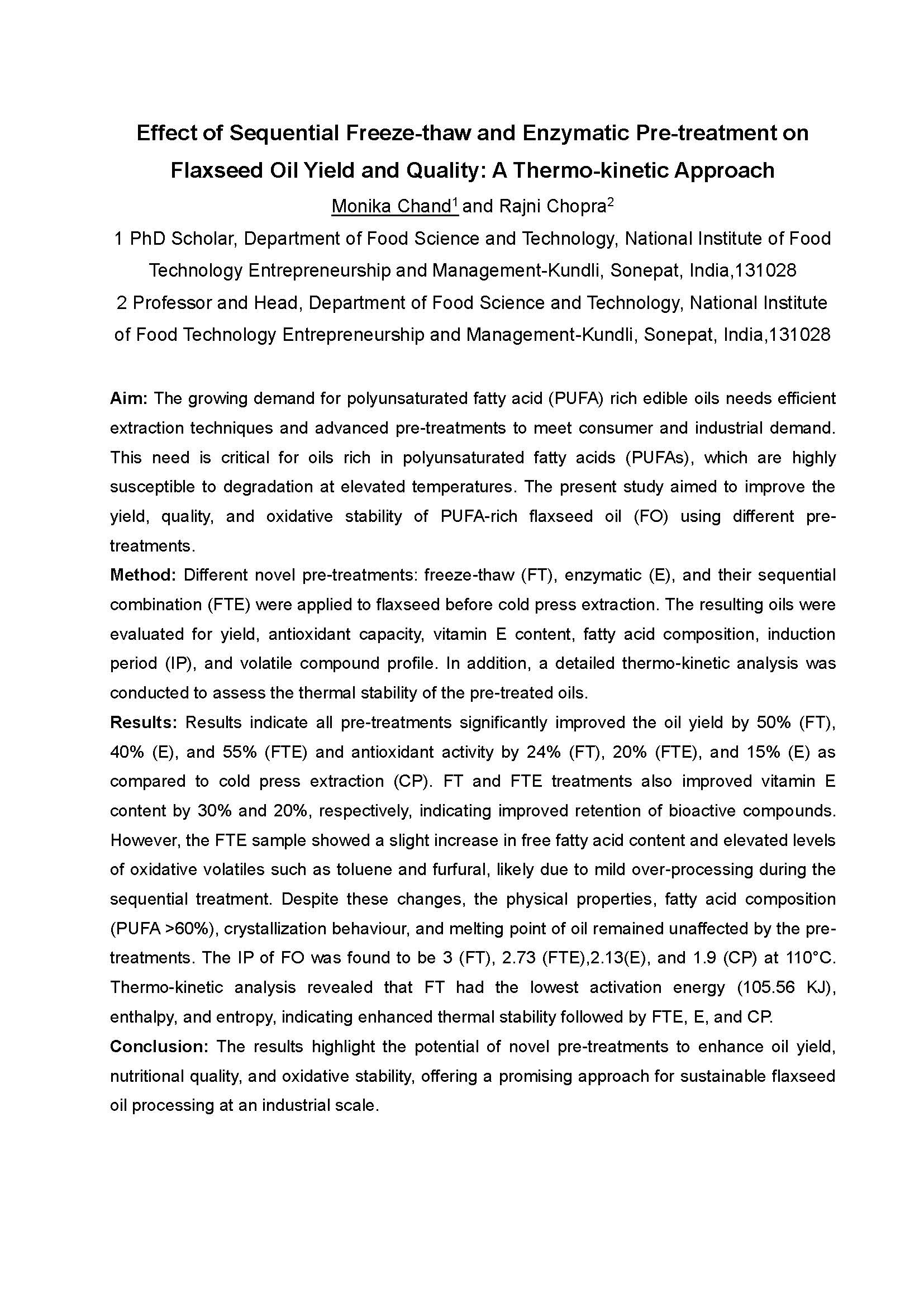Aim: The growing demand for polyunsaturated fatty acid (PUFA) rich edible oils needs efficient extraction techniques and advanced pre-treatments to meet consumer and industrial demand. This need is critical for oils rich in polyunsaturated fatty acids (PUFAs), which are highly susceptible to degradation at elevated temperatures. The present study aimed to improve the yield, quality, and oxidative stability of PUFA-rich flaxseed oil (FO) using different pretreatments.
Method: Different novel pre-treatments: freeze-thaw (FT), enzymatic (E), and their sequential combination (FTE) were applied to flaxseed before cold press extraction. The resulting oils were evaluated for yield, antioxidant capacity, vitamin E content, fatty acid composition, induction period (IP), and volatile compound profile. In addition, a detailed thermo-kinetic analysis was conducted to assess the thermal stability of the pre-treated oils.
Results: Results indicate all pre-treatments significantly improved the oil yield by 50% (FT), 40% (E), and 55% (FTE) and antioxidant activity by 24% (FT), 20% (FTE), and 15% (E) as compared to cold press extraction (CP). FT and FTE treatments also improved vitamin E content by 30% and 20%, respectively, indicating improved retention of bioactive compounds. However, the FTE sample showed a slight increase in free fatty acid content and elevated levels of oxidative volatiles such as toluene and furfural, likely due to mild over-processing during the sequential treatment. Despite these changes, the physical properties, fatty acid composition (PUFA >60%), crystallization behaviour, and melting point of oil remained unaffected by the pretreatments. The IP of FO was found to be 3 (FT), 2.73 (FTE),2.13(E), and 1.9 (CP) at 110°C. Thermo-kinetic analysis revealed that FT had the lowest activation energy (105.56 KJ), enthalpy, and entropy, indicating enhanced thermal stability followed by FTE, E, and CP.
Conclusion: The results highlight the potential of novel pre-treatments to enhance oil yield, nutritional quality, and oxidative stability, offering a promising approach for sustainable flaxseed oil processing at an industrial scale.
